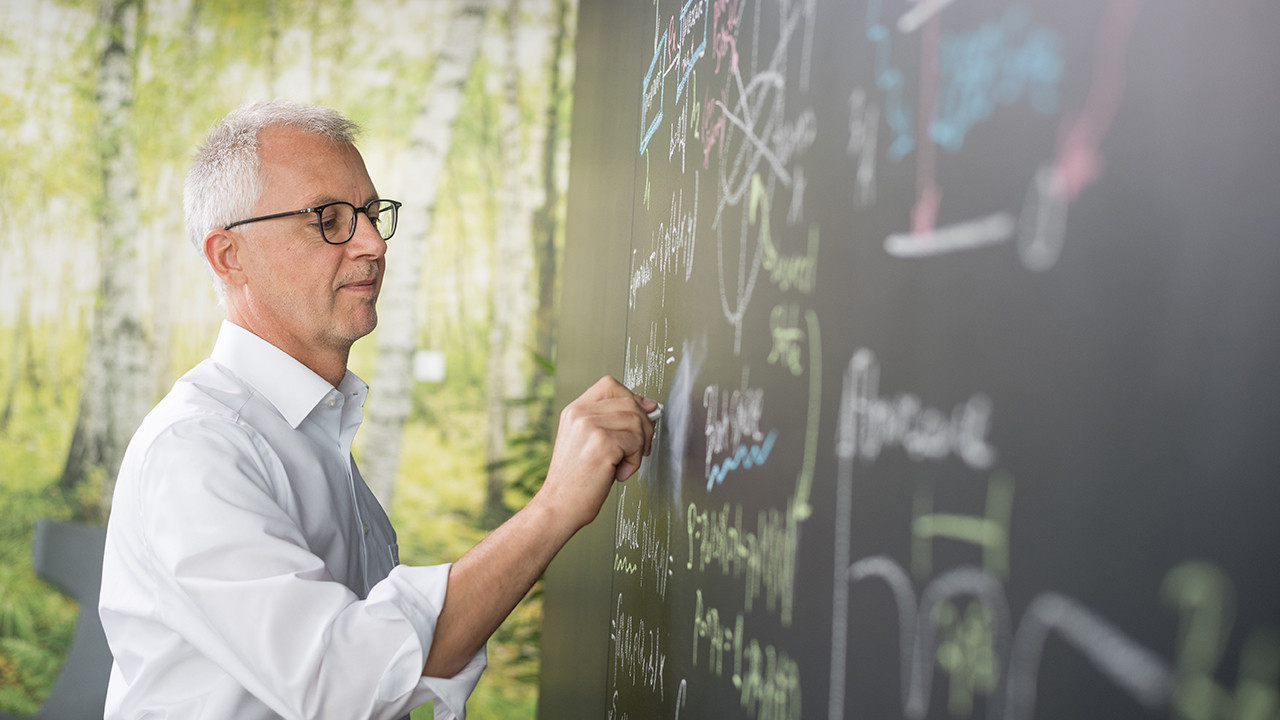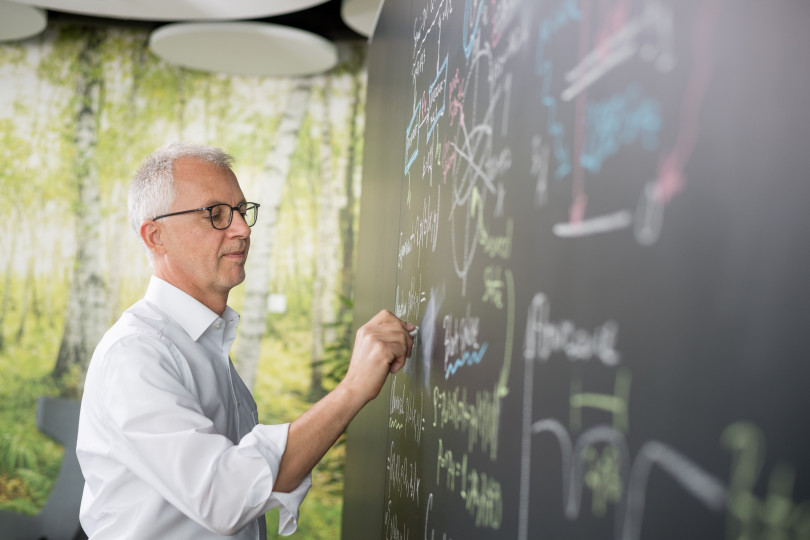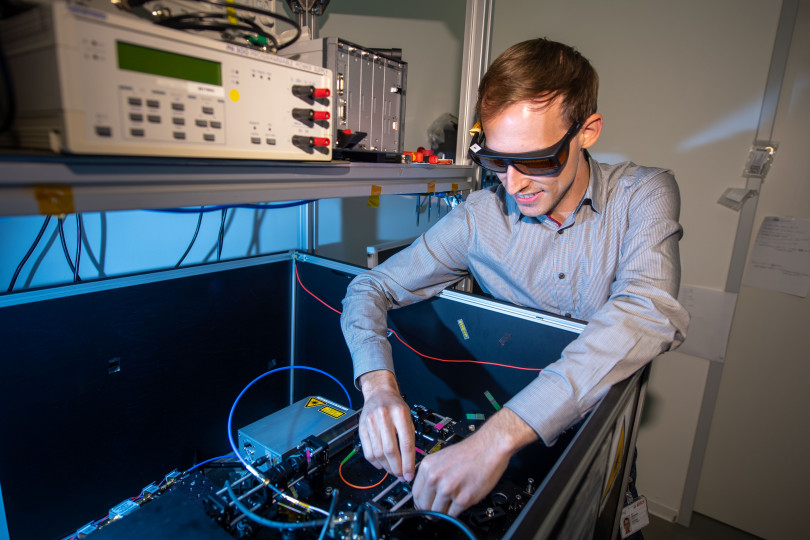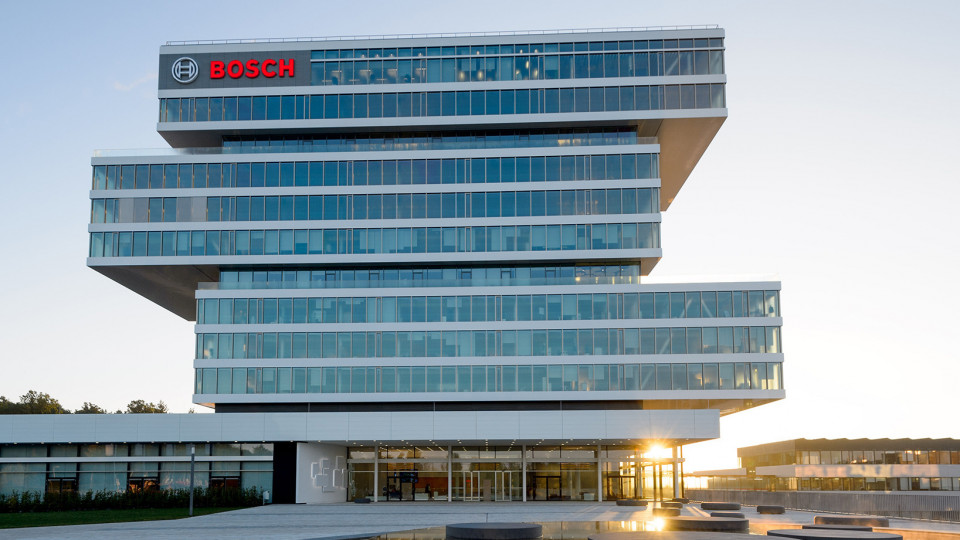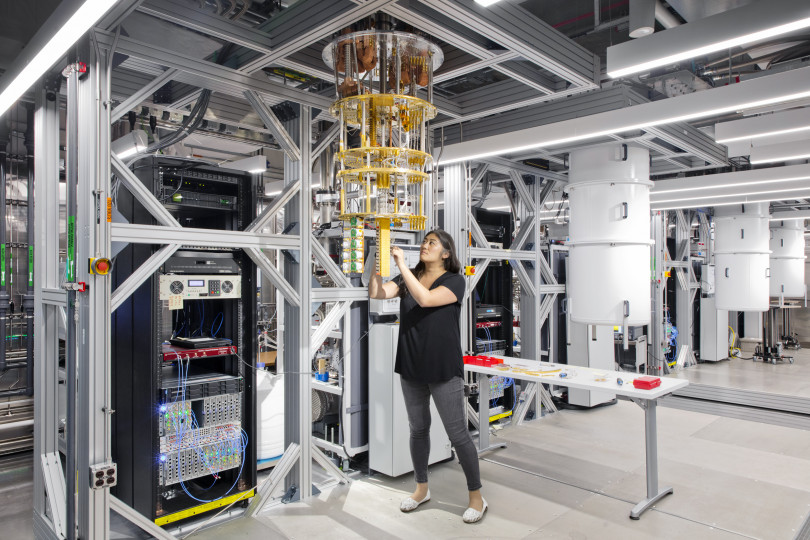Berlin, Germany – Bosch remains on the offensive in its digital transformation: by 2025, the supplier of technology and services will have invested 10 billion euros in digitalization and connectivity. Two-thirds of this will go toward developing and expanding promising new technologies, with a focus on sustainability, mobility, and Industry 4.0. “For Bosch, digitalization presents major opportunities in all areas of business,” said Dr. Stefan Hartung, chairman of the Bosch board of management, at this year’s Bosch Connected World (BCW) AIoT industry conference in Berlin. “In addition to promising new technologies, we will be investing in vocational training and professional development for our associates – since they are the key to technology that is ‘Invented for life’ both today and tomorrow,” Hartung said. For the technology of the more distant future, Hartung also announced that Bosch is partnering with IBM, a U.S.-based technology company, in the field of quantum computing. Bosch’s goal is to use quantum computing simulation of materials to find surrogates for the precious metals and rare earths in carbon-neutral powertrains – in the electric motor and the fuel cell – in the next ten years.
Search for sustainable solutions is accelerating
Bosch brings its many years of experience in the simulation of materials that are especially important for industrial applications to the collaboration. In return, the supplier of technology and services will gain access to IBM’s fleet of more than twenty advanced quantum computers available over the IBM cloud. With the help of future generations of quantum computers, Bosch aims to determine the properties of new materials in ways that would be impractical on conventional computers in terms of time or complexity: As quantum computer performance improves in the more distant future, it may be possible to draw conclusions on specific properties of new materials in a fraction of the time that is needed on conventional computers. The work on quantum algorithms for exploring use cases of interest will involve research by experts from both Bosch and IBM. “We share our experience in simulating materials for very specific application areas with IBM and in return we gain deeper insights into the power and applicability of quantum computing including hardware. Together, we are taking quantum simulation to the next level and are gaining a competitive edge internationally,” Hartung said. In addition to new materials for fuel cells, Bosch is also interested in new magnets for electric motors that are lighter, more compact, more efficient, and more readily available. Such new materials promise to be more environmentally friendly than rare earths.
Quantum technologies crucial for technological sovereignty
When it comes to software for quantum computers, science and industry in Germany occupy a strong position in global competition with the U.S. and China. Market research institutes see great potential in the technology. The Boston Consulting Group estimates that the market for quantum computing, including new products and services, will be worth as much as 850 billion dollars in the next 15 to 30 years. The forecasts for the field of quantum sensor technology are also promising: McKinsey expects this market to grow to as much as 7 billion dollars in the years ahead. “Quantum technology is crucial for Europe’s technological sovereignty. It’s important that we don’t leave it to other regions to develop on their own, but instead open up industrial areas of application and develop business models without delay,” Hartung said.
Bosch currently has some 30 experts working in the fields of quantum sensor technology and quantum computing. Since the beginning of this year, a Bosch startup has been working to accelerate the commercialization of quantum sensors. Bosch has been conducting research in this area for years and plays a leading role internationally. Like quantum computers, quantum sensors also have immense potential. They achieve unprecedented precision compared to conventional MEMS (microelectromechanical system) sensors. In the foreseeable future, it will be possible to use them to achieve a measurement accuracy that is 1,000 times greater. In medicine, for example, quantum sensors will be able to help diagnose neurological conditions such as Alzheimer’s more accurately and easily. They will also be able to sense nerve impulses, and in this way move medical prostheses and enable control purely by thought in virtual realities. “Through our activities in quantum sensors and partnering with IBM in our research, we are creating technology that is ‘Invented for life’ in its very best sense,” Hartung said.
Sustainability is just a mouse-click away
To leverage the opportunities of digitalization and play an active role in shaping the connected world, Bosch is also systematically recruiting associates with in-depth IT and software expertise. Currently, the company has around 40,000 software experts working in many areas of future importance. The associates at the new Bosch startup Decarbonize Industries, for example, are developing a software solution that helps industrial enterprises achieve carbon neutrality. The solution will be a platform, jointly developed by Bosch and the energy supplier EWE AG, which will draw on current data from the energy market, legislation, and other sources to show companies the optimum route to greater sustainability.
Mónika Hack
+36 70 510 5516
The Bosch Group is a leading global supplier of technology and services. It employs roughly 402,600 associates worldwide (as of December 31, 2021). The company generated sales of 78.7 billion euros in 2021. Its operations are divided into four business sectors: Mobility Solutions, Industrial Technology, Consumer Goods, and Energy and Building Technology. As a leading IoT provider, Bosch offers innovative solutions for smart homes, Industry 4.0, and connected mobility. Bosch is pursuing a vision of mobility that is sustainable, safe, and exciting. It uses its expertise in sensor technology, software, and services, as well as its own IoT cloud, to offer its customers connected, cross-domain solutions from a single source. The Bosch Group’s strategic objective is to facilitate connected living with products and solutions that either contain artificial intelligence (AI) or have been developed or manufactured with its help. Bosch improves quality of life worldwide with products and services that are innovative and spark enthusiasm. In short, Bosch creates technology that is “Invented for life.” The Bosch Group comprises Robert Bosch GmbH and its roughly 440 subsidiary and regional companies in some 60 countries. Including sales and service partners, Bosch’s global manufacturing, engineering, and sales network covers nearly every country in the world. With its more than 400 locations worldwide, the Bosch Group has been carbon neutral since the first quarter of 2020. The basis for the company’s future growth is its innovative strength. At 128 locations across the globe, Bosch employs some 76,100 associates in research and development, of which more than 38,000 are software engineers.
The company was set up in Stuttgart in 1886 by Robert Bosch (1861–1942) as “Workshop for Precision Mechanics and Electrical Engineering.” The special ownership structure of Robert Bosch GmbH guarantees the entrepreneurial freedom of the Bosch Group, making it possible for the company to plan over the long term and to undertake significant upfront investments in the safeguarding of its future. Ninety-four percent of the share capital of Robert Bosch GmbH is held by Robert Bosch Stiftung GmbH, a charitable foundation. The remaining shares are held by Robert Bosch GmbH and by a corporation owned by the Bosch family. The majority of voting rights are held by Robert Bosch Industrietreuhand KG, an industrial trust. The entrepreneurial ownership functions are carried out by the trust.
Additional information is available online at www.bosch.hu, iot.boschblog.hu, www.bosch.com, www.iot.bosch.com, www.bosch-press.com, www.twitter.com/BoschPresse

